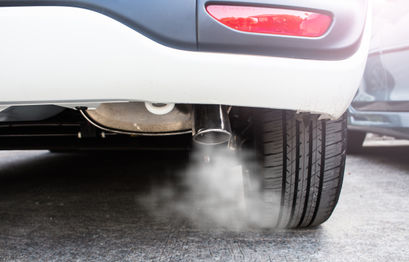- Cars manufactured by the PSA Group in 2020 had the lowest CO2 emissions, where only 1.7% are considered “high-emitters”
- All of the cars manufactured by Subaru in 2020 were considered “high-emitters”
- The energy crisis led to car production costs increasing from $50 to $679 and $764 per unit.
Environmental issues have been an ever-growing concern for decades now, with many pointing fingers at car manufacturers. In addition, the worsening of the energy crisis caused by the Russia-Ukraine war means that leading car brands need to make profound changes for the consumer, the planet, and their own liquidity.
BanklessTimes.com analyzed these two issues through the lens of CO2 emissions caused by core car manufacturers, as well as the rising production costs manufacturers face.
Some Good News - Fewer High Emitters
According to a 2020 report provided by the The European Federation for Transport and Environment, there are far fewer newly registered cars considered “high-emitters” (those that emit more than 130 grams of CO2 per passenger kilometer) than before. In 2020, only one out of five newly registered cars can be considered a high emitter, compared to three out of five in 2019.
Furthermore, the emissions generated by new cars have fallen by 12% compared to the previous year, from 122g/km in 2019, to 108 g/km in 2020. However, this lowered average is still higher than the 95g/km goal set by the EU.
It should also be noted that the high-emitters registered in 2020, while far lower in number, emmit on average 2% more carbon dioxide (155g/km) than their 2019 counterparts (151.9g/km).
CO2 Emissions by Car Brand
Using the aforementioned EU report, here is how the leading car manufacturers rank in terms of emissions.
The PSA group (formerly Peugeot) only has 1.7% of their cars (that have been registered in 2020) falling into the high-emitter category.
Then, we have Toyata Mazda who have 11.9% of their cars emitting more than 130g/km. The R-N-M pool is at 13.8%, while Suzuki is at 17.2%.
Next, Hyundai, the FCA pool, and the VW pool are very close, with 23.7%, 24.3% and 24.5% respectively.
Kia, Ford-Volvo, and the BMW group are higher, with 25.7%, 26.7%, and 29.3%.
UK’s Daimler has 44.1% of its newly registered fleet exceeding the 2020 limit, while the Jaguar Land Rover group is at a whopping 79.8%.
Finally, all of the cars registered in 2020 that have been manufactured by Subaru are considered high emitters.
However, we need to make an important note. If we take into account the derogations (i.e. partial exceptions) that have been granted to Subaru and JLR, then the Daimler group has in fact, the highest numbers.
The Rising Cost of Car Manufacture
In one way, we can be hopeful for the future. As well as fewer and fewer high emitters being sent out onto the roads, zero-emission cars made up 6% of all new registrations in 2020, four percentage points more than in 2019.
However, the leading car brands can expect a new challenge.
Because of the energy crisis, manufacturing costs are skyrocketing. In fact, the average cost of producing a car has risen from $50 to between $679 and $764 ((EUR to USD exchange rate on the 23rd of October). It is also expected that this crisis will lower car production by 40% by 2023. Whilst this might be good for the environment in the short term, the economic ramifications might be severe.
The consistent lowering of CO2 emissions caused by cars, as well as the advent and popularization of electric vehicles, is definitely something we can all be thankful for. However, only time will tell how car manufacturers will deal with the rising energy costs caused by the current geopolitical situation, while still meeting environmental goals.Jonathan Merry, CEO of BanklessTimes.com
Contributors












